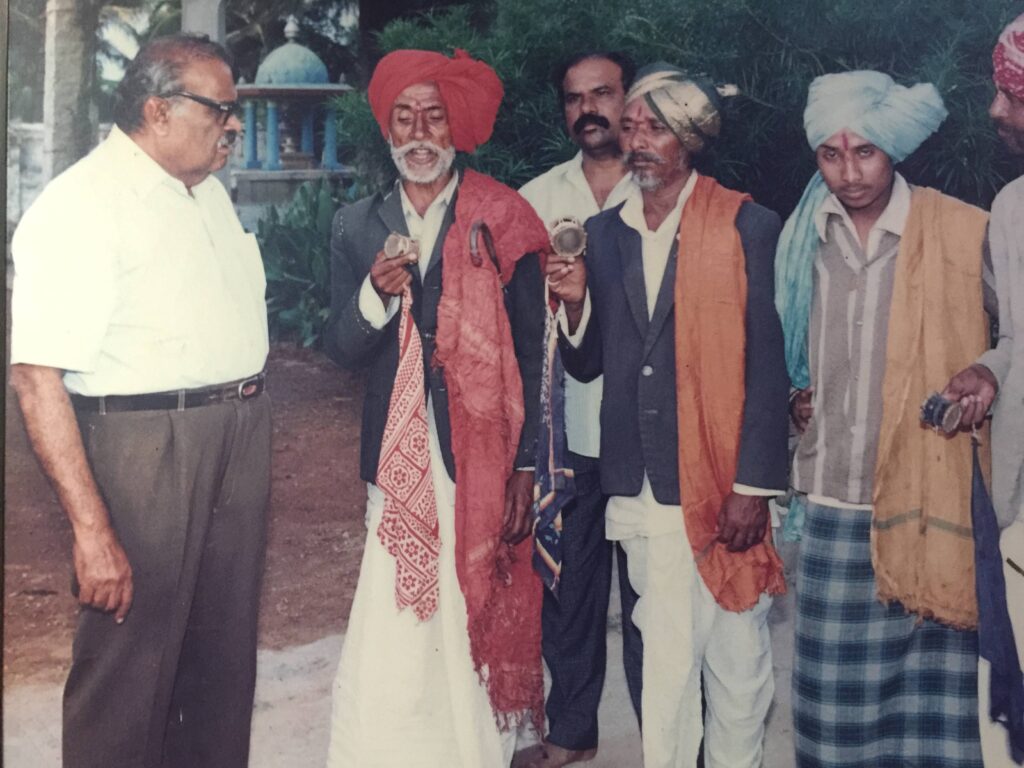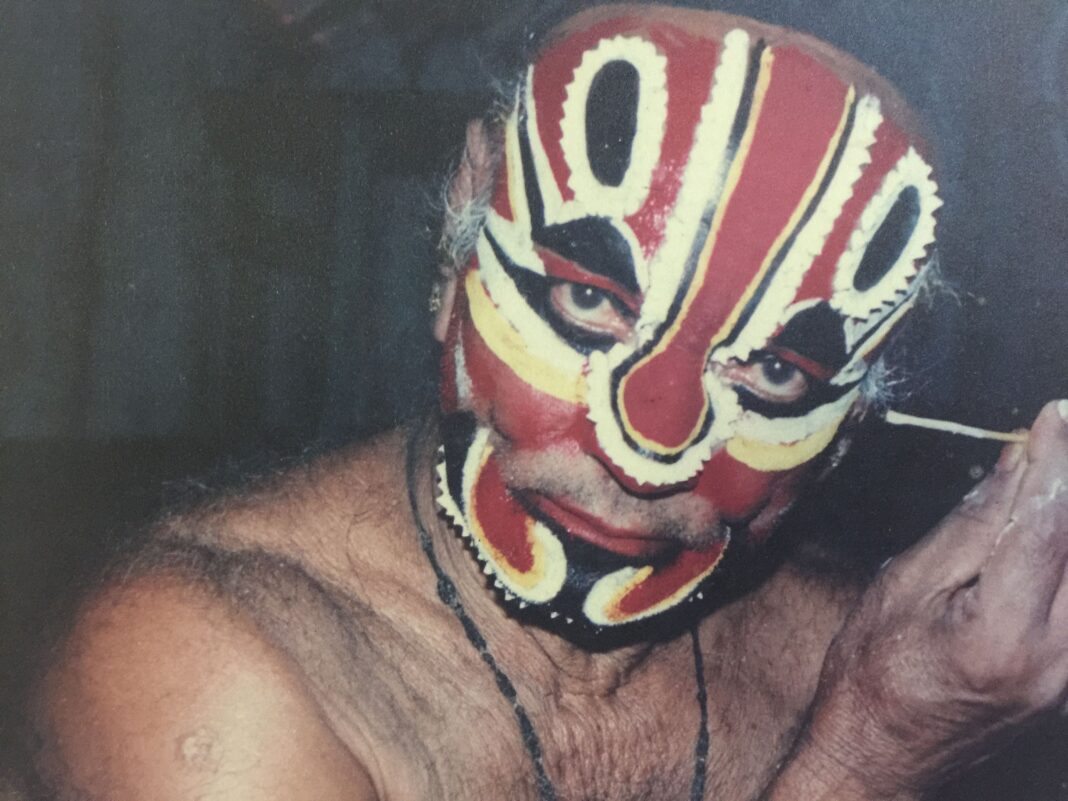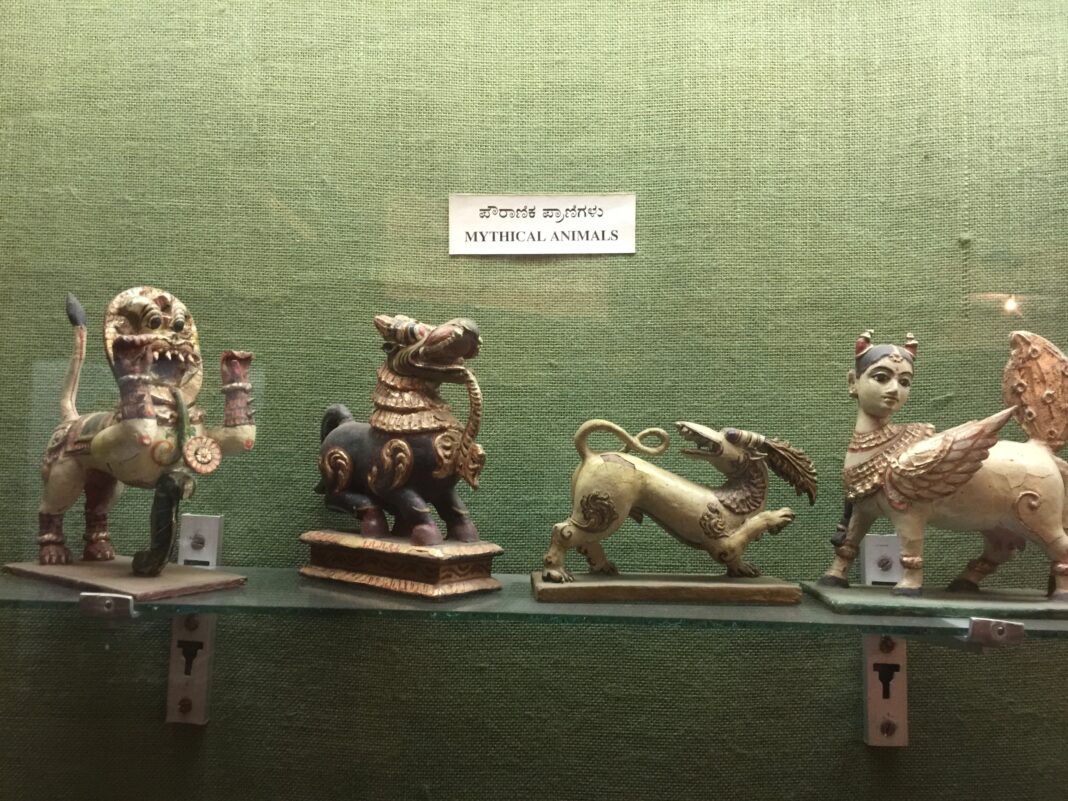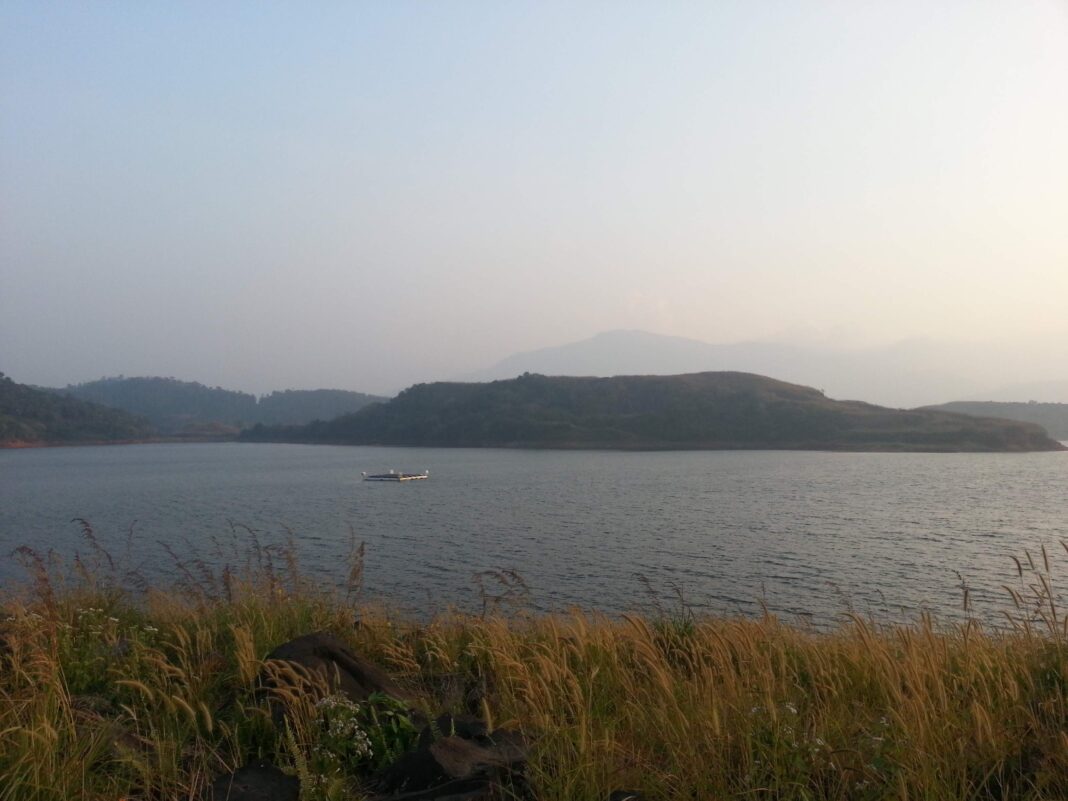Janapada Loka is a place that has a museum for rich collection of utensils/items used by villagers (called hallis in Kannada language) 150 years ago in rural Karnataka. Its covered in this article – HERE.
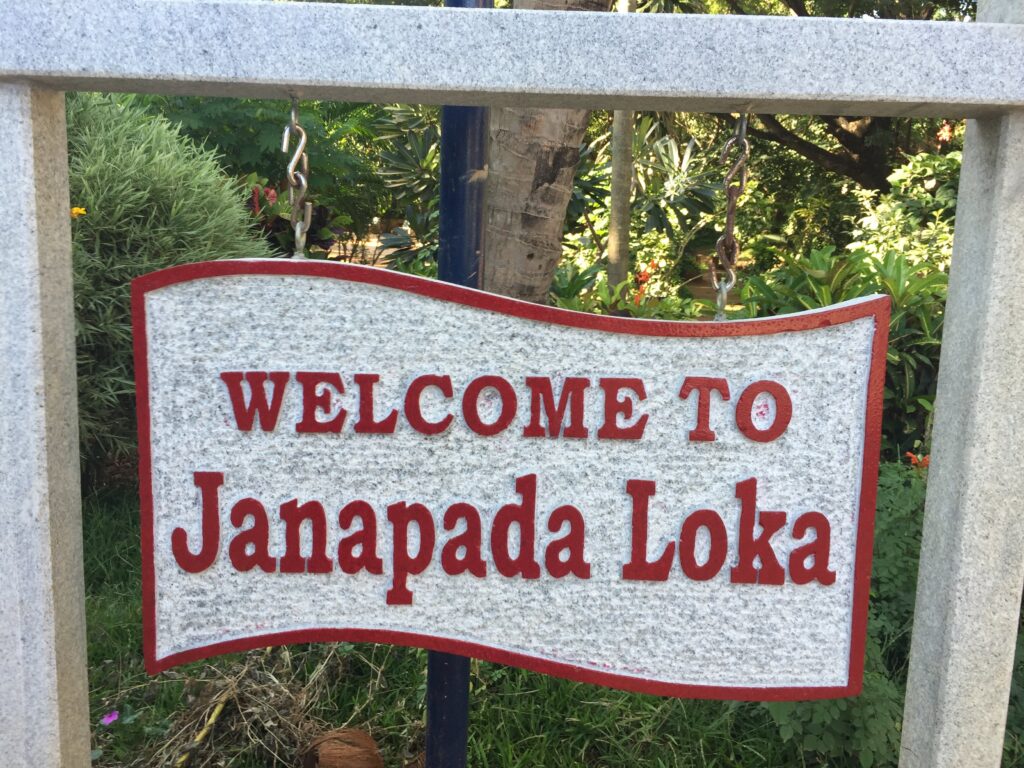
There is another museum in Janapada Loka that has a collection of photographs of various folk art performances by villagers. In this article, we will cover this in detail, the museum is called “Chitra Kuteera”, located adjacent to the other museum in Janapada Loka, Ramnagara.
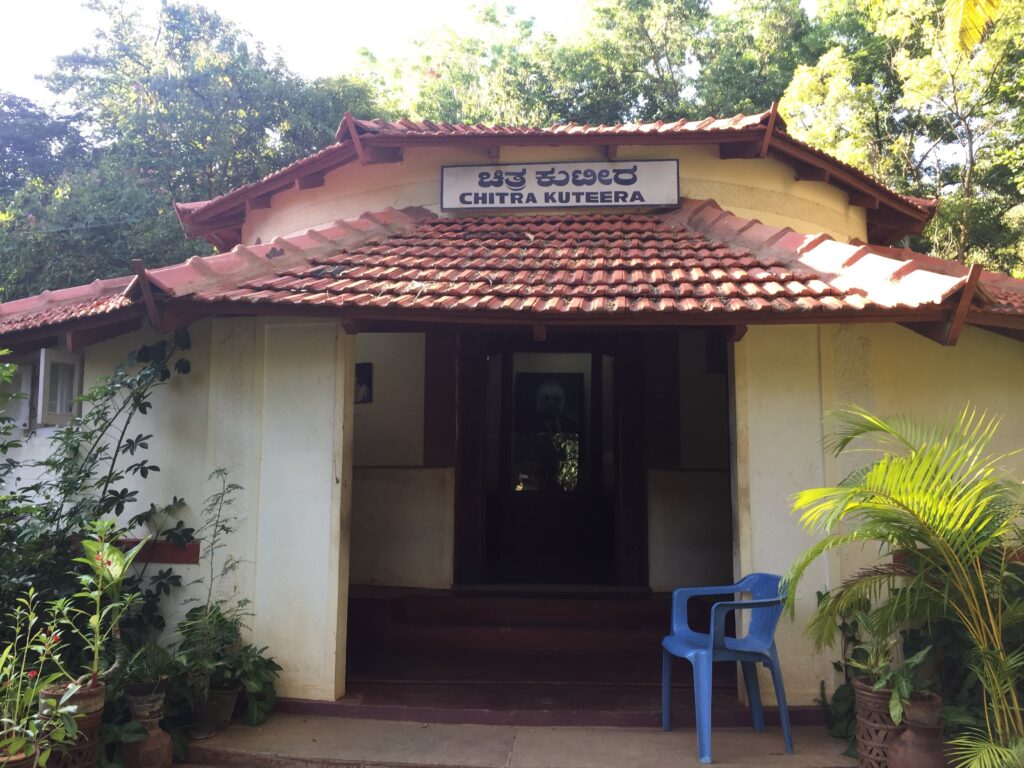
If you are a person who’s interested in learning about culture, then Janapada Loka is a must watch for you. Spend about 30 minutes to read the description for every photo and learn about the older rural Kannada folk culture.
All pictures below are photos taken from the framed photographs in display in the museum. Note: Taking photograph is allowed inside the museum.
Photo of a Uttara Kannada villagers during a folk dance performance.
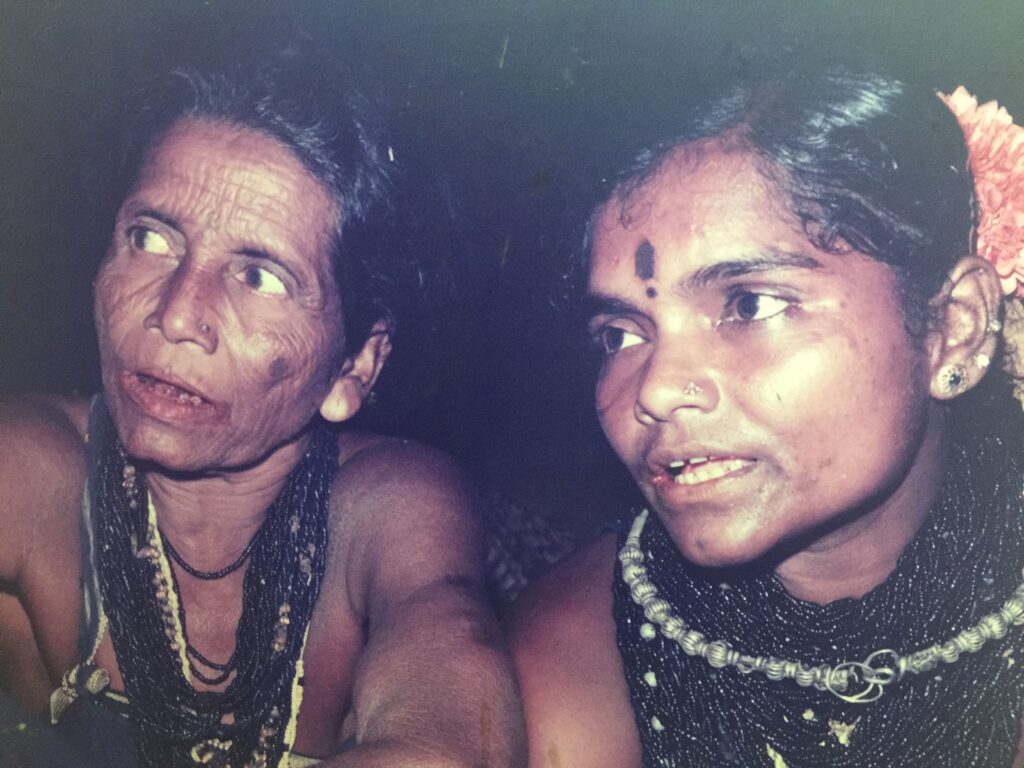
Ummathat: Young unmarried women dressed in traditional dress dance in front of goddess Cauvery
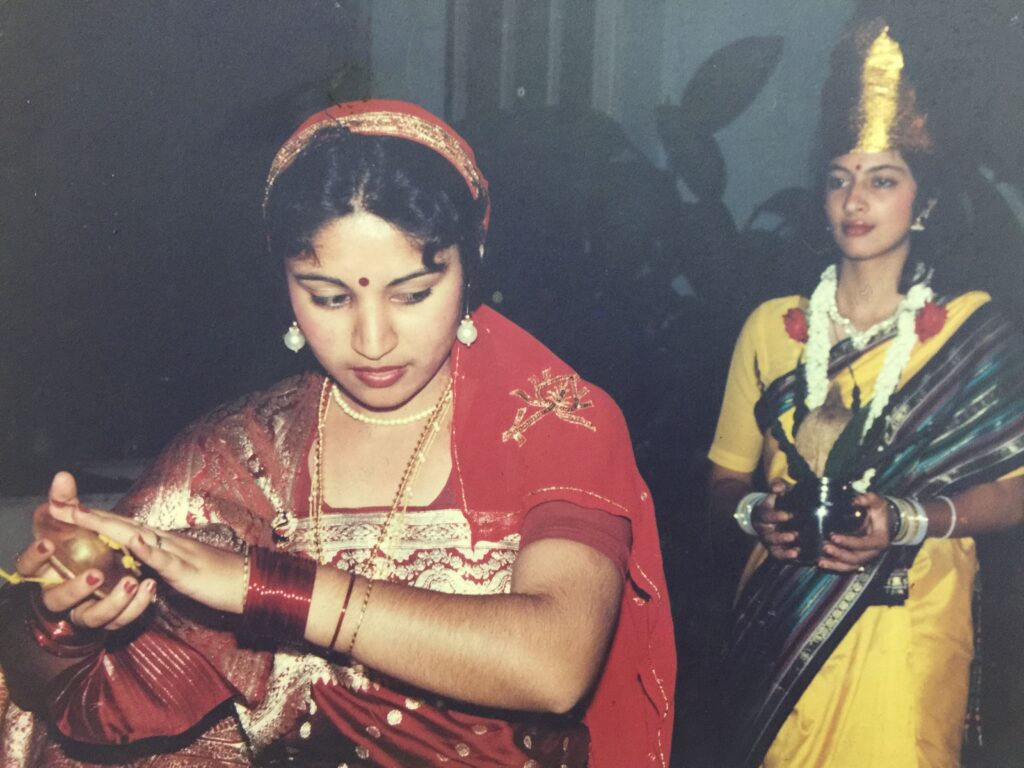
Veeragase: Instrument used – Sammala, Karade, Dimmu, and Olaga. This dance is to represent heroic sentiment and valour, and hence the usage of sword by all dancers.
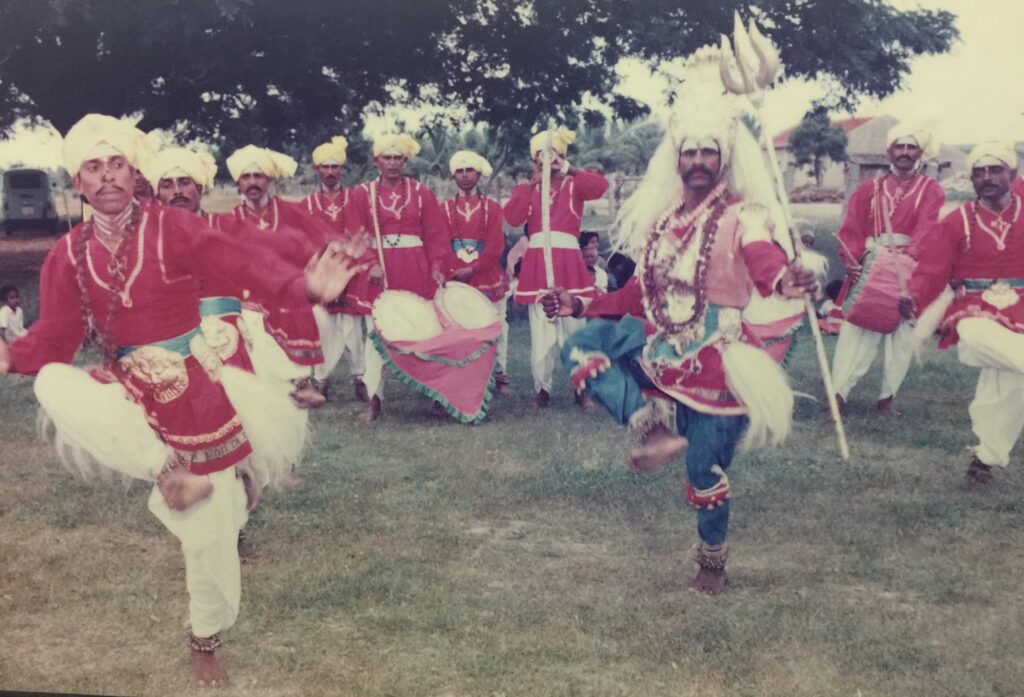
Camp fire dance / harvest dance / mari dance: Here, the instrument used is Thamate. With a Mysore turban in head and a towel in hand, this dance is performed in front of the village diety.
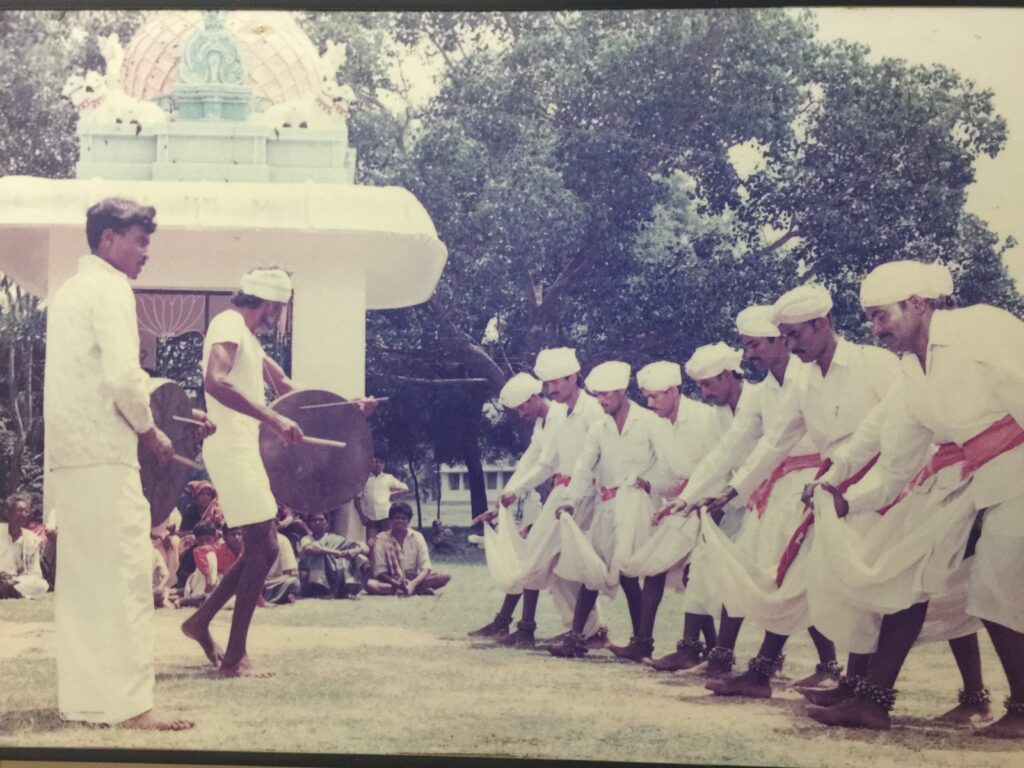
He is Goravaiah: The flute he uses is called Pillangovi. The instrument in his right hand is called Damaruga.
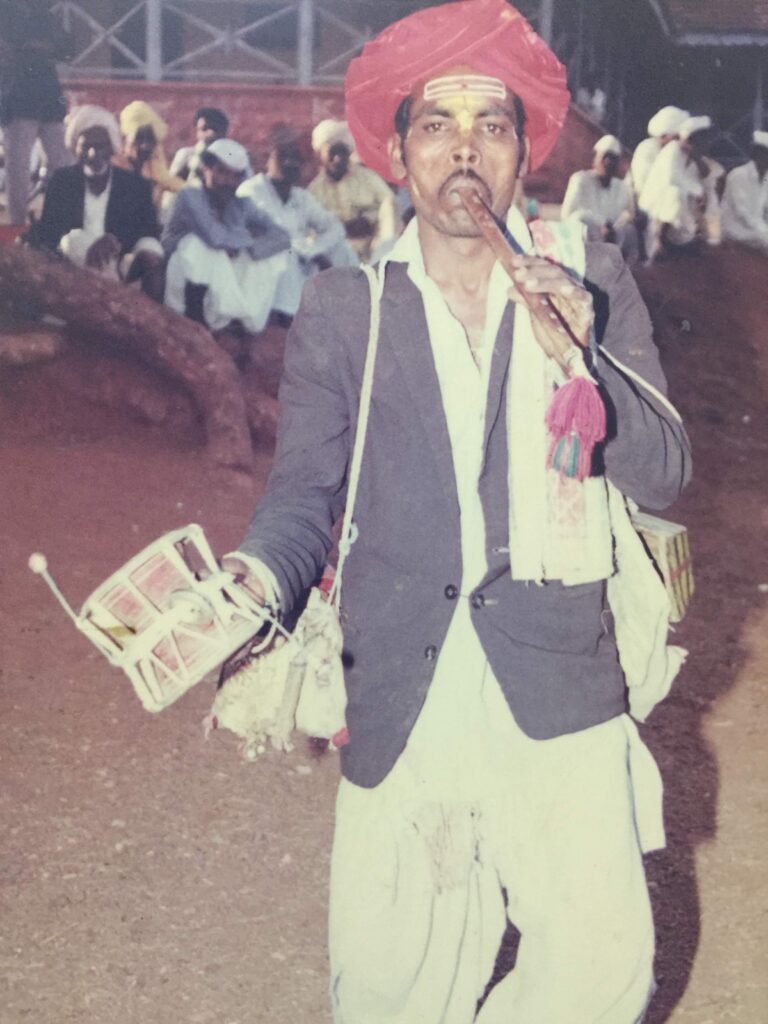
Neelagaras: Instruments from left to right are: Gaggaras, Tambura, and Damaruga.
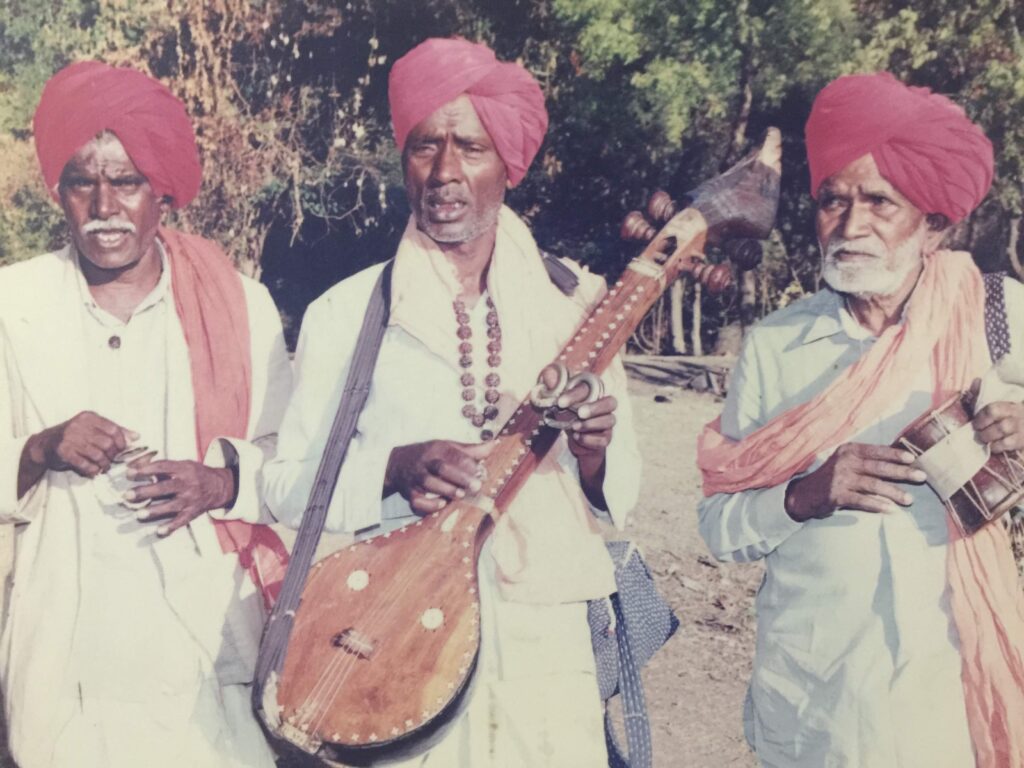
Chowdike: Instruments from left to right are Chowdike, Gunichowdike, and Dammadi.
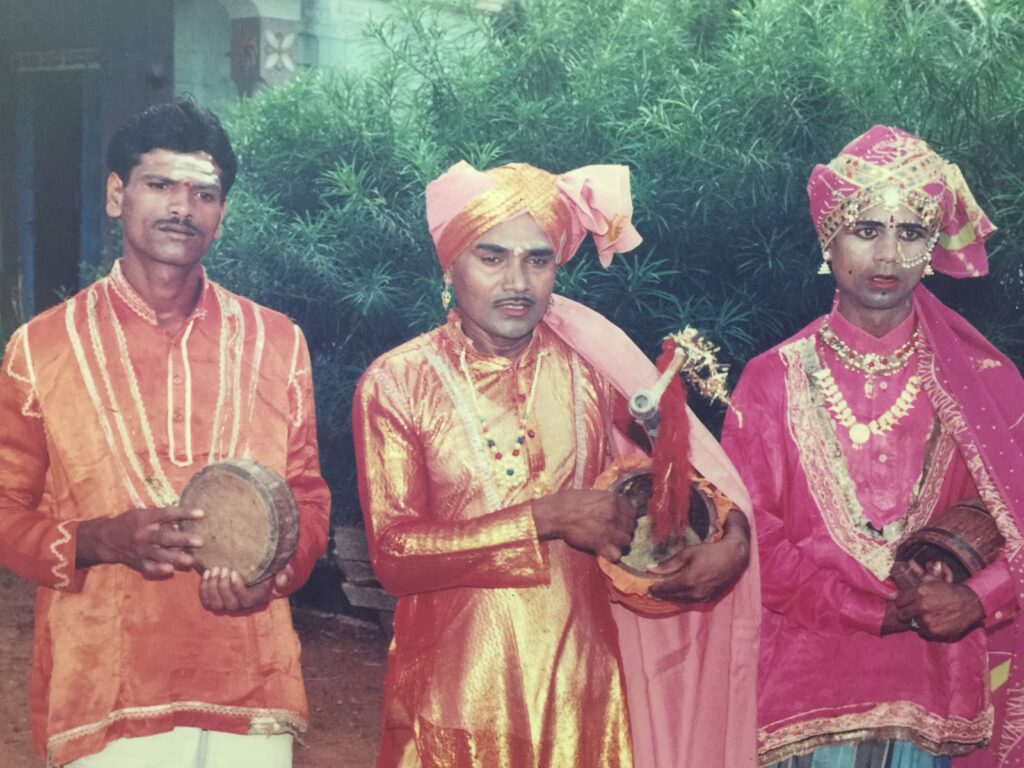
Gondas Dance: Gondas are hill tribals who excel in dance. Two or three people dress as buffoons in Zebra stripes join the Gondas to dance during harvest festivity.
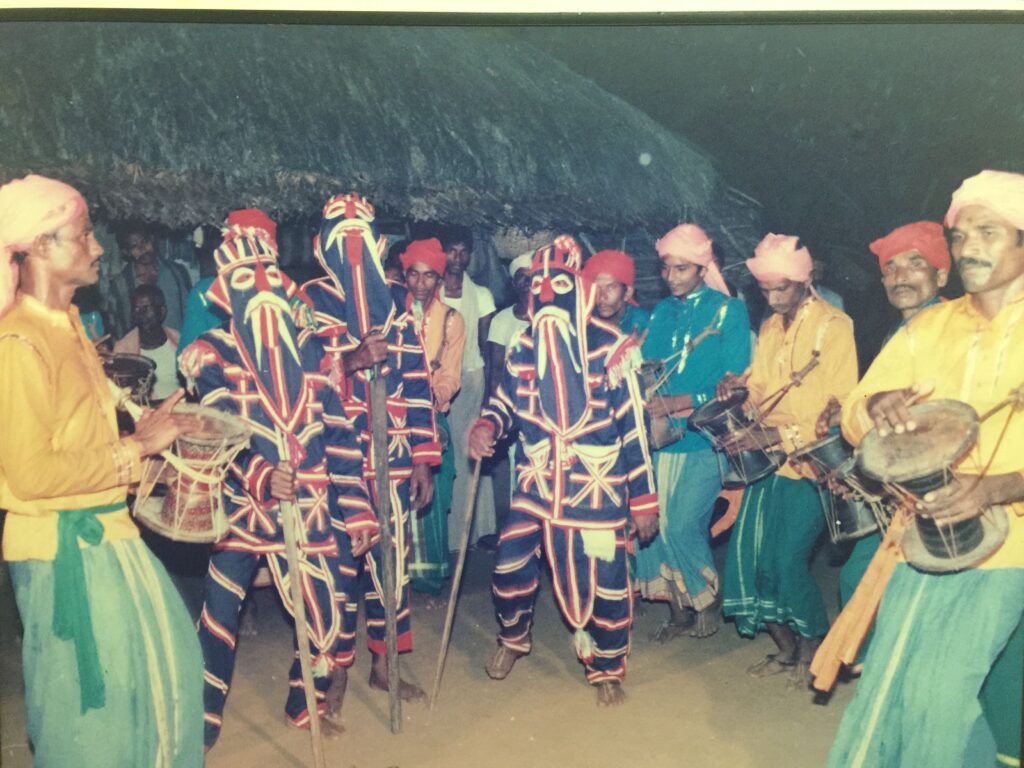
Fisher women folk dance: Women dance around sand dunes in circular fashion.
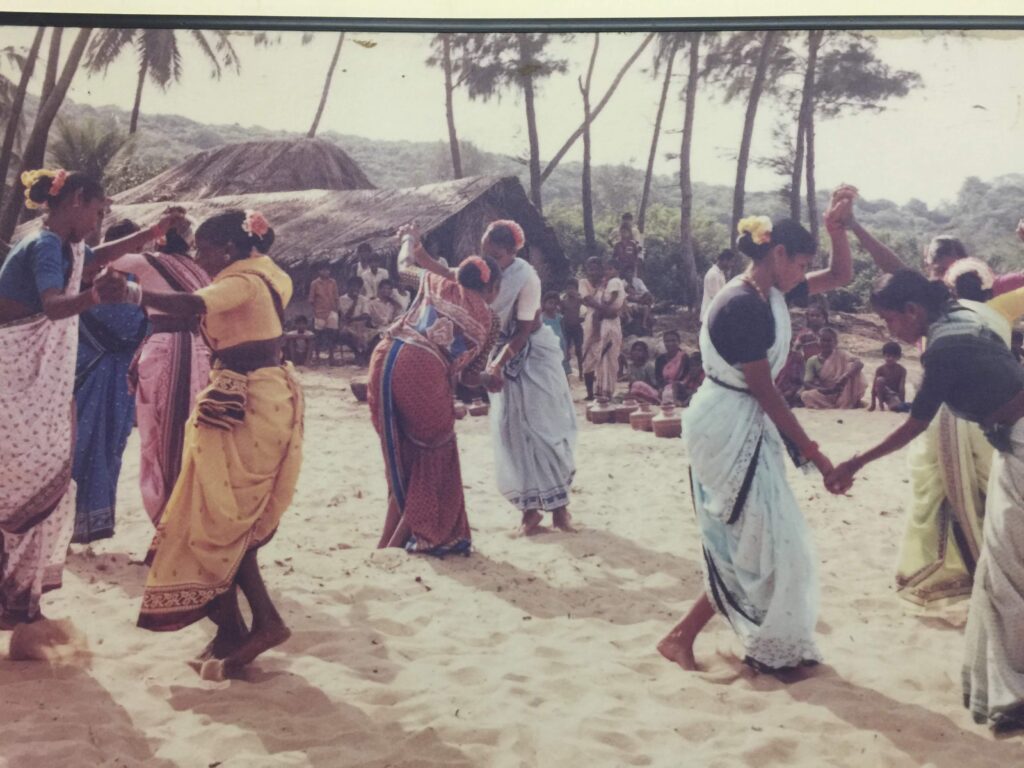
Martyr wife icons: Wives of warriors who die at battlefield do not continue their life, and they offer themselves to the fire as a sacrifice and turn into “Masti”. These wooden Mastis are given as token gifts to kith and kin.
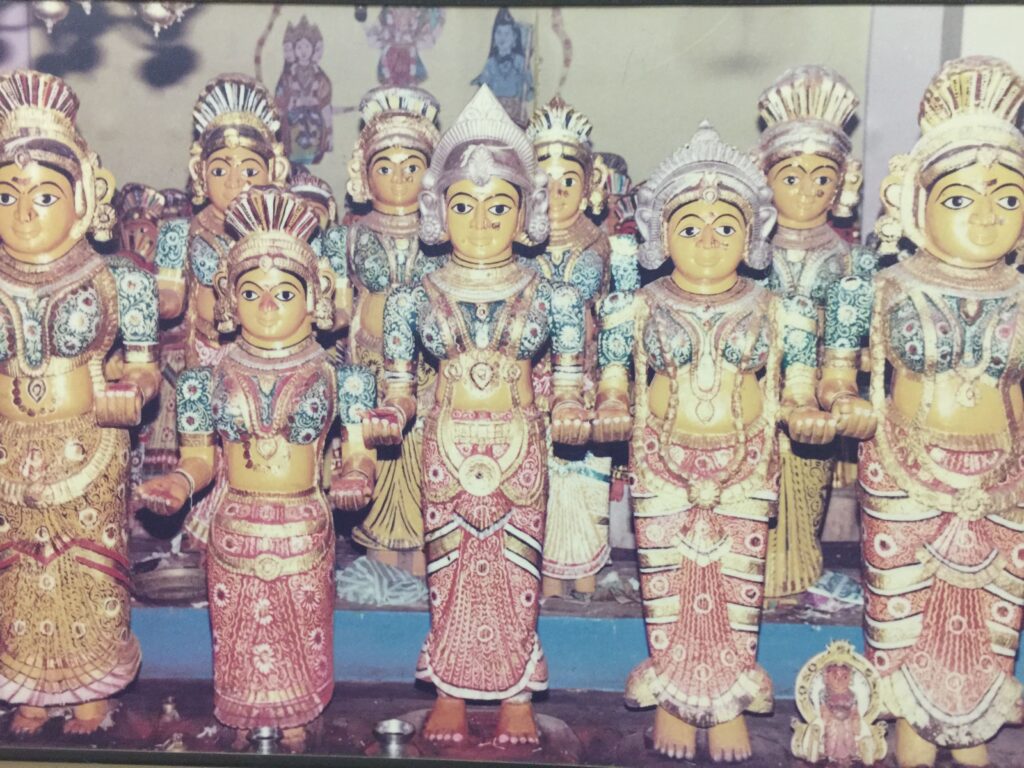
Mailaralinga Fair: Mailaralinga festival takes place in a place called Hadagali near Bellary. People from far and near travel to this place in their bullock carts and setup temporary tents to see the procession of diety.
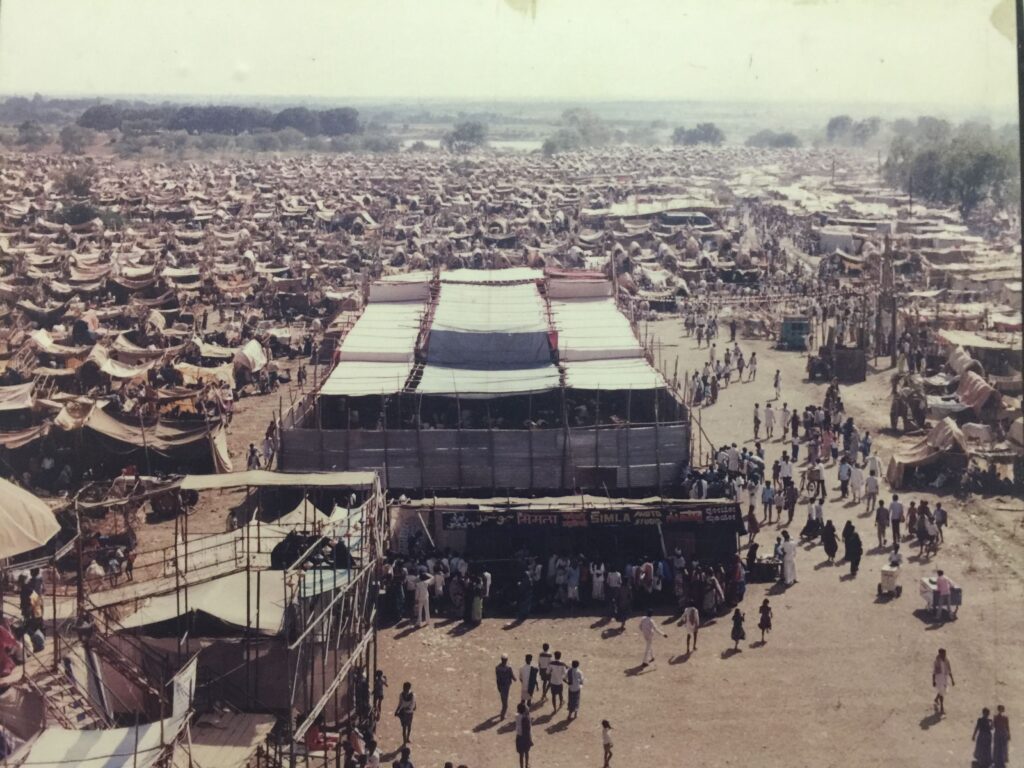
Siri: A young woman who is deserted by her husband is sheltered at her parents residence. She goes through a second marital phase which is called as Siri in rural areas in Dakshina Kannada.
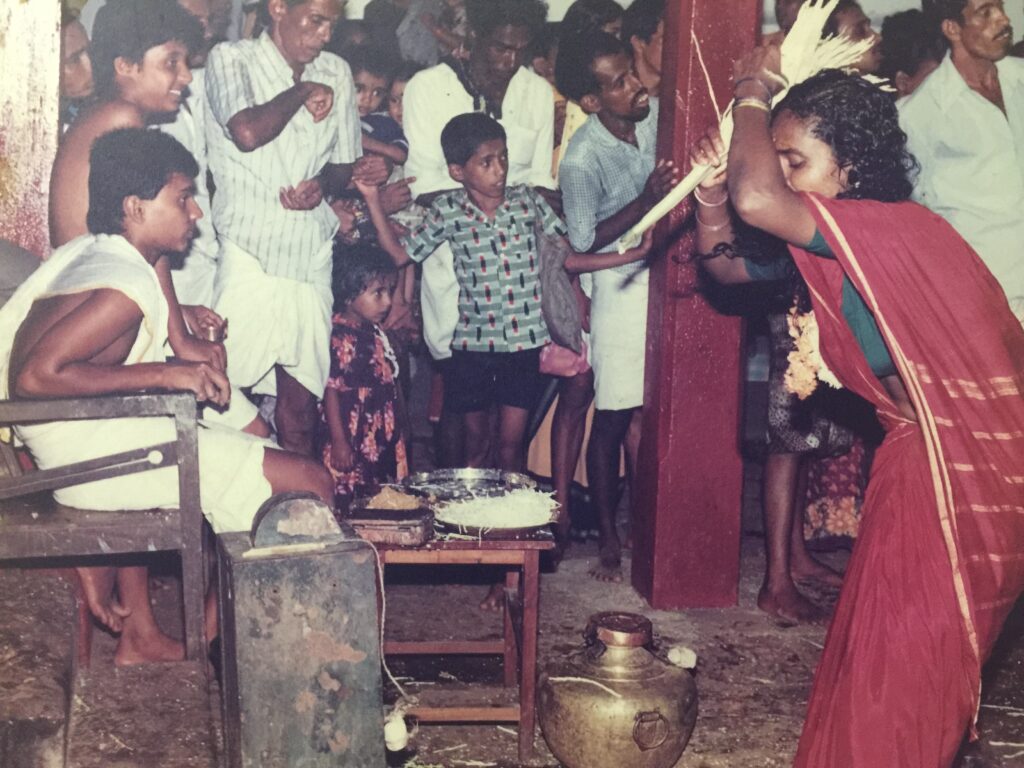
Gumate Mela: This musical drum instrument is used by Halakki Vokkaligas (a caste in Karnataka) during special occasions and folk gatherings.
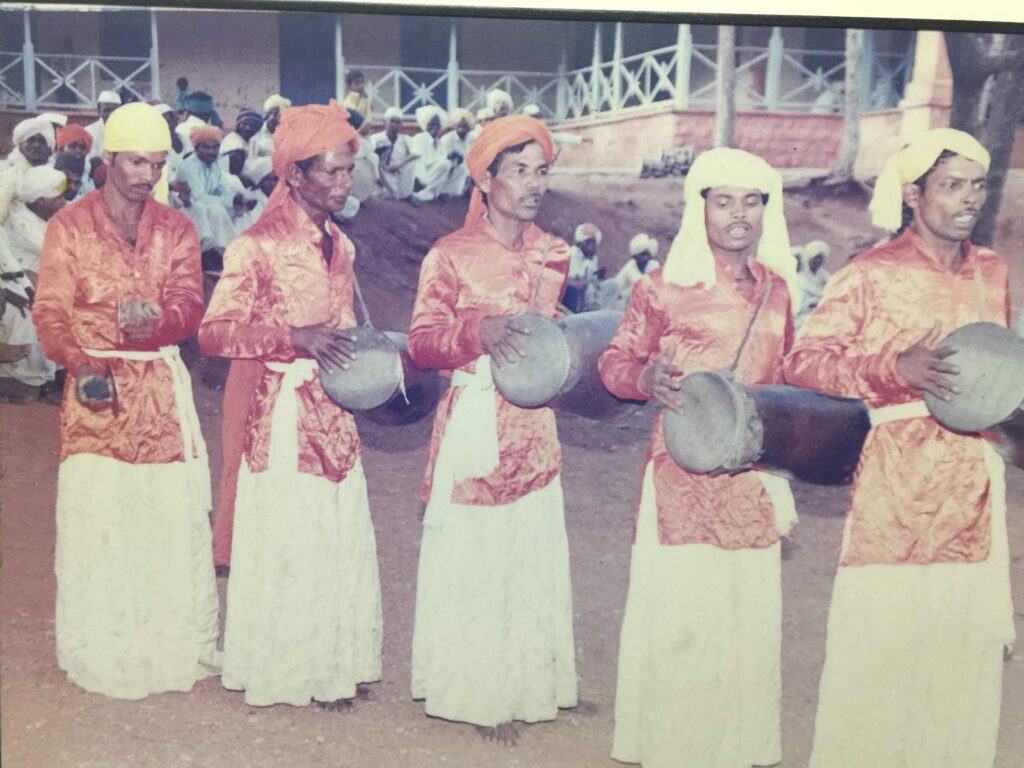
Pleasanties: Halakki Vokkaligas of Uttara (North) Kannada wear colourful dresses during harvest festivities.
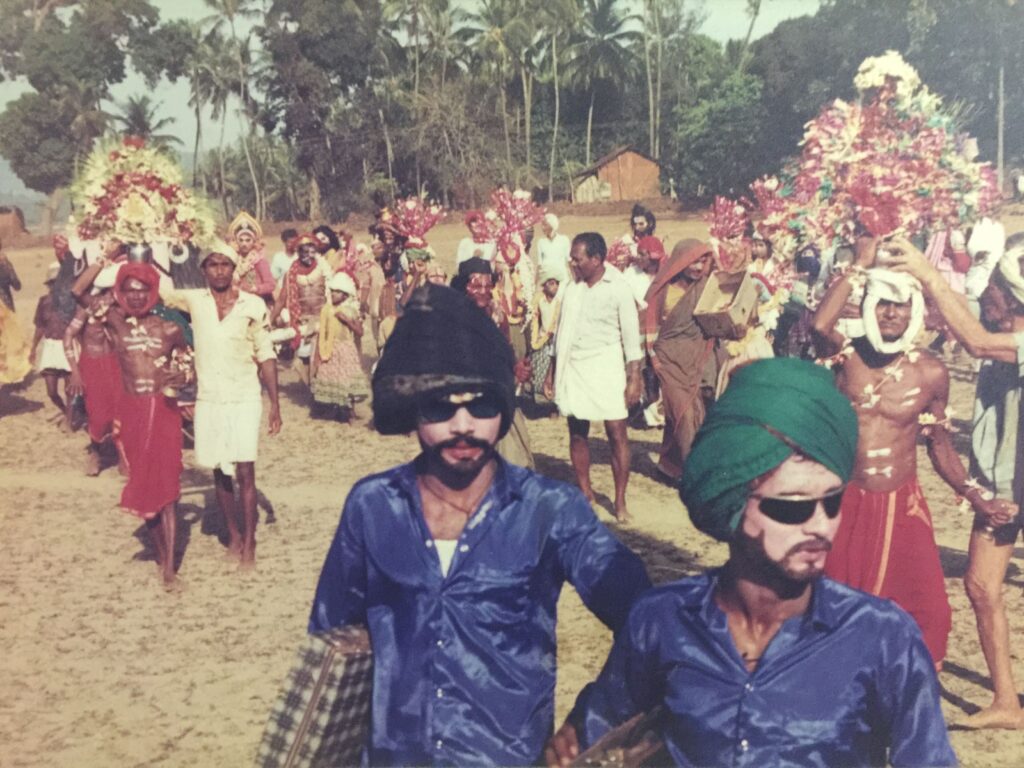
Tharle Barle: This is a prayer dance by the women of Halakki. This dance is performed in circular fashion to invoke rain god.
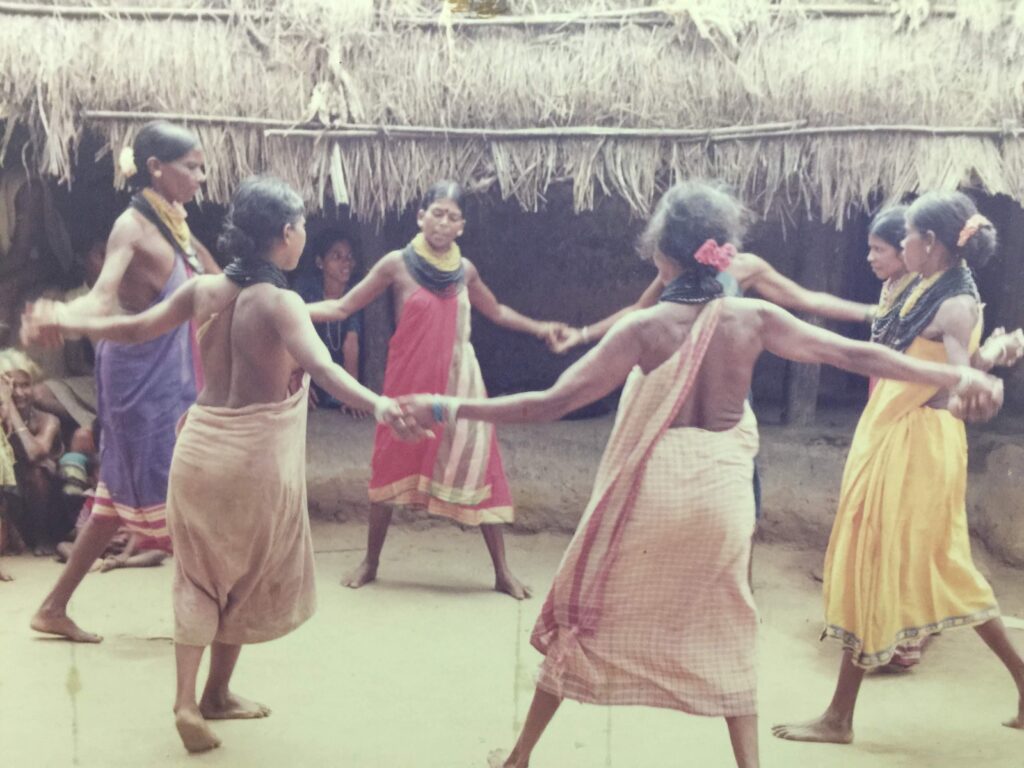
Full moon pooja: On full moon day, a picture of chariot is drawn by women using powder or lime. On this day, two young boys are dressed as a wedding couple for fun, it is also a mocking act to tell the moon to get married and not remain single.
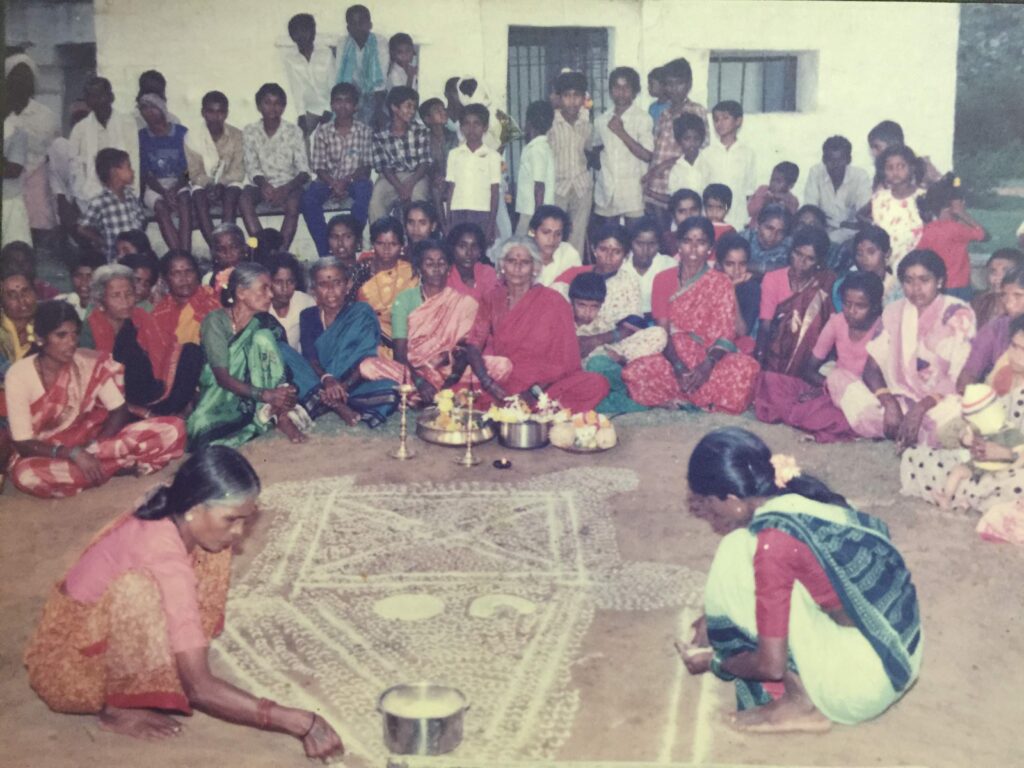
Various artists during their makeup session before their dance performance.
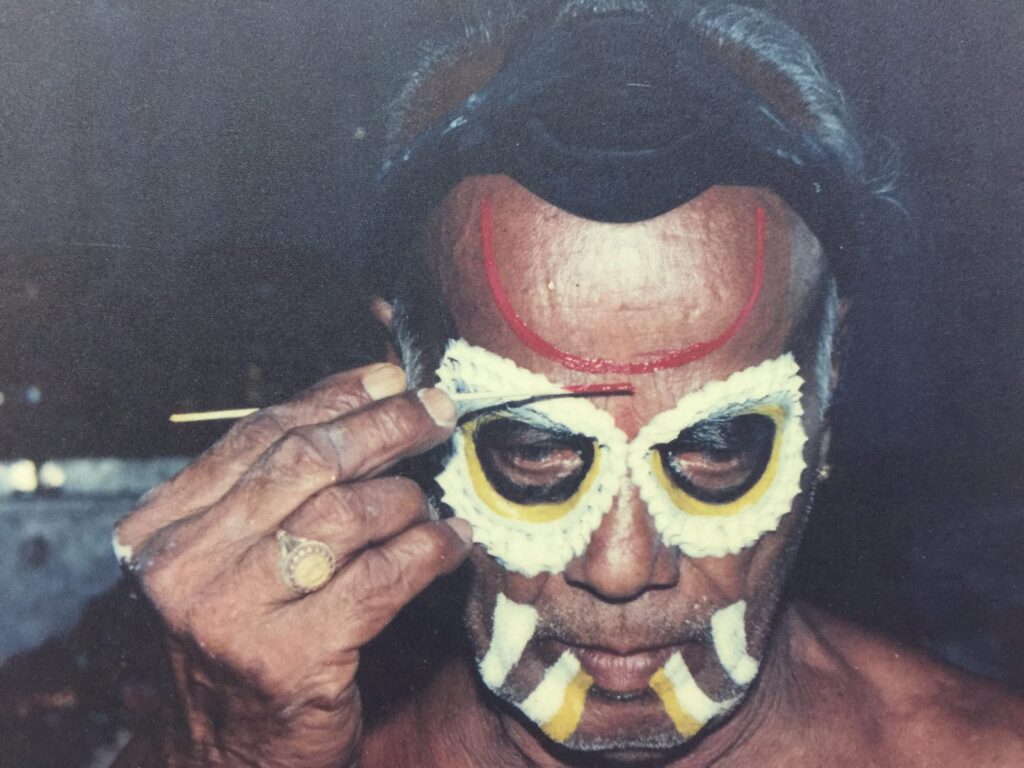
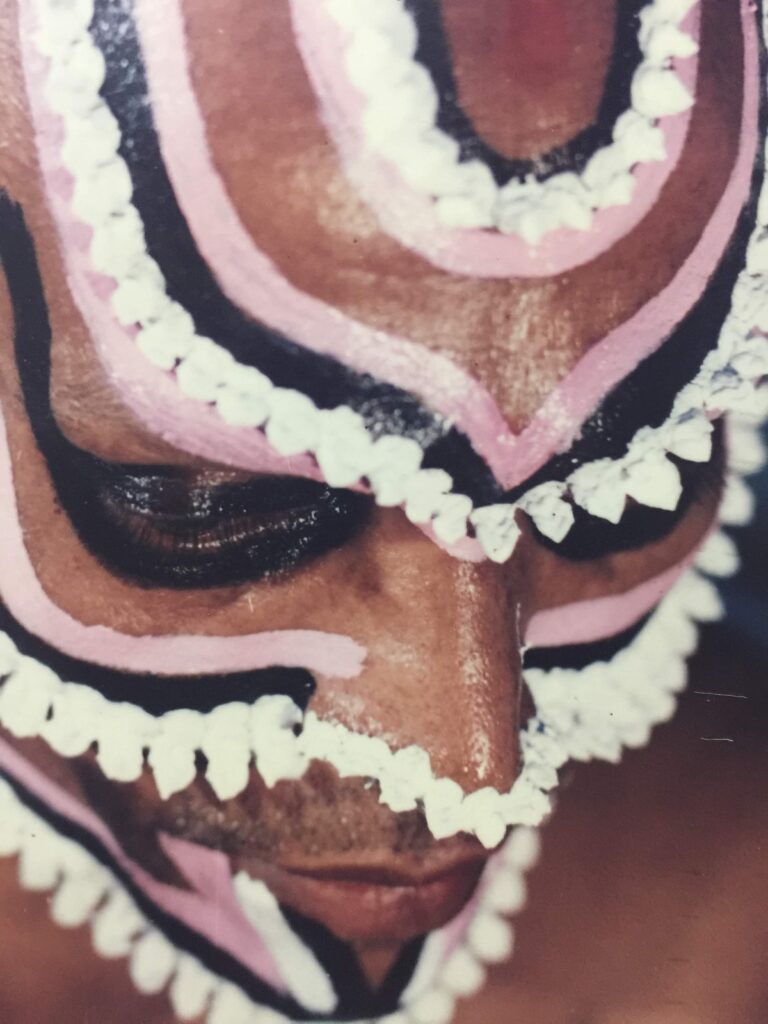
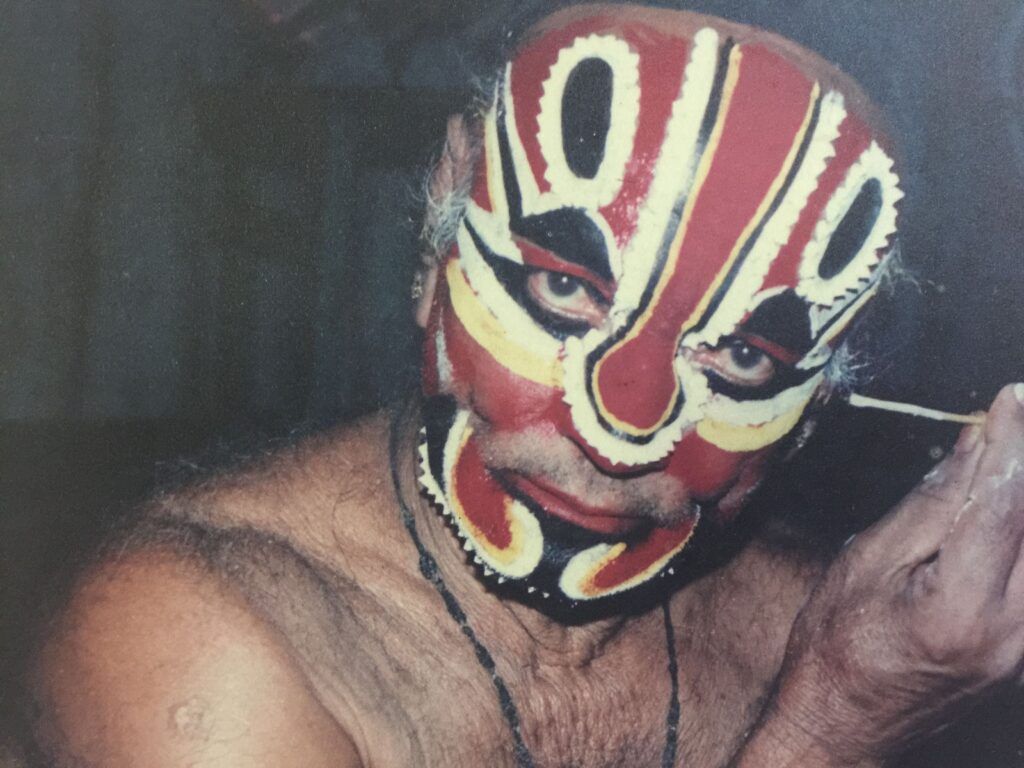
HL Nagegowda, an IAS officer, is the founder of Janapada Loka.
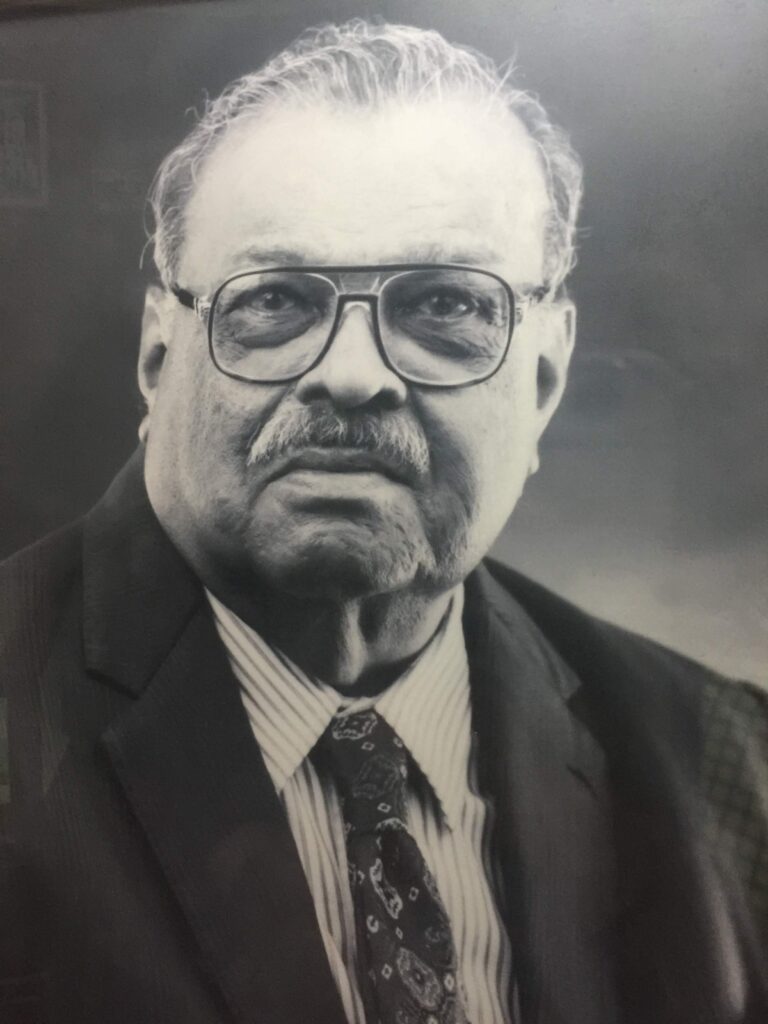
Nagegowda’s walking sticks and glasses.
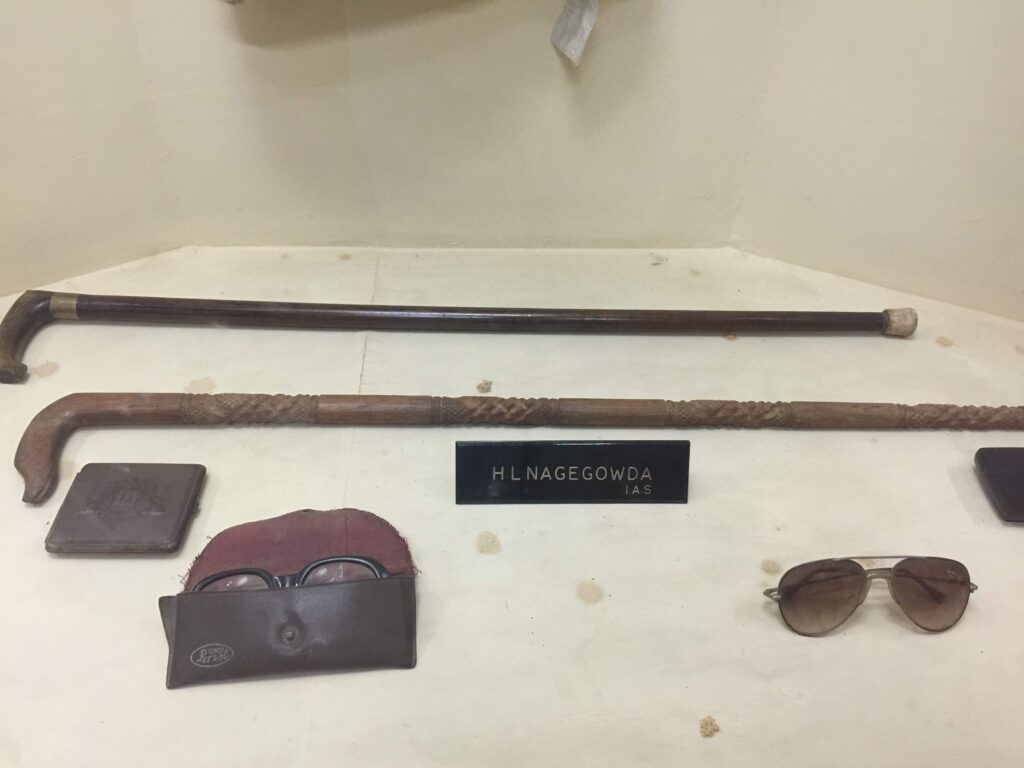
Nagegowda meeting with folk art performers.
